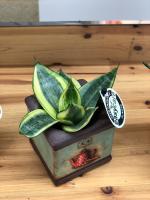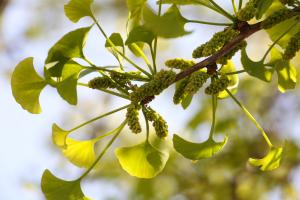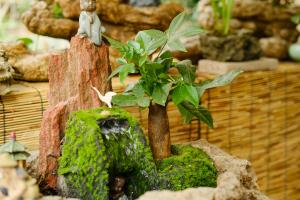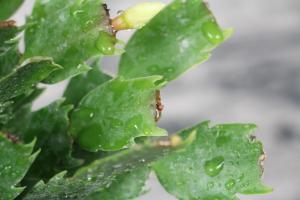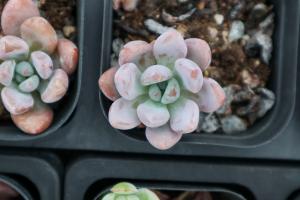Introduction
Ladybugs are well known for their bright colors and adorable appearance. They are famous for being beneficial insects in the garden, known for their abilities to eat harmful pests that threaten plants. However, many gardeners wonder if ladybugs eat pot plants, and if so, what measures they can take to protect their plants.
What Do Ladybugs Eat?
Ladybugs are predatory insects that feed on aphids, mealybugs, spider mites, and other small plant pests. They are particularly fond of aphids, which are tiny insects that suck fluids out of plants and stunt their growth. Ladybugs can consume hundreds of aphids in a single day, making them a valuable asset in the garden.
Do Ladybugs Eat Pot Plants?
Ladybugs do not eat pot plants themselves. They are only interested in eating the pests that are consuming the plants. If your pot plants are infested with aphids or other small insects, ladybugs will happily feed on them. However, if your pot plants are healthy and pest-free, ladybugs will not harm them. In fact, ladybugs are beneficial to pot plants as they can help keep them free from pests.
How to Attract Ladybugs to Your Garden
If you want to attract ladybugs to your garden, there are several things you can do. First, you can plant a variety of plants that ladybugs like, such as dill, fennel, and cilantro. These plants produce pollen and nectar that ladybugs enjoy. Second, you can avoid using pesticides that can harm ladybugs and other beneficial insects. Finally, you can purchase ladybugs from a reputable supplier and release them in your garden. However, it's important to note that ladybugs may fly away from your garden if they don't find enough food or shelter.
How to Protect Your Pot Plants
If you want to protect your pot plants from harmful pests, there are several measures you can take. First, you can use natural pest-control methods, such as neem oil, garlic spray, or insecticidal soap. These products are less toxic than chemical pesticides and won't harm beneficial insects like ladybugs. Second, you can use physical barriers, such as sticky traps, to catch pests before they can harm your plants. Finally, you can keep a close eye on your pot plants and remove any pests or infected leaves as soon as you spot them.
Conclusion
Ladybugs are an asset to any garden. They do not eat pot plants, but they do feed on the pests that damage them. If you want to attract ladybugs to your garden, plant a variety of plants that they like and avoid using pesticides. If you want to protect your pot plants from pests, use natural pest-control methods, physical barriers, and keep a close eye on your plants. By following these guidelines, you can help create a healthy and thriving garden.

 how many times do yo...
how many times do yo... how many planted tre...
how many planted tre... how many pine trees ...
how many pine trees ... how many pecan trees...
how many pecan trees... how many plants comp...
how many plants comp... how many plants can ...
how many plants can ... how many plants and ...
how many plants and ... how many pepper plan...
how many pepper plan...
